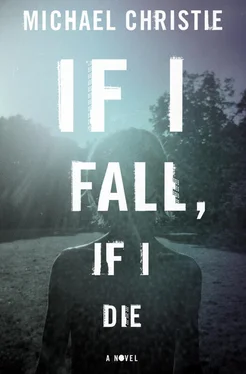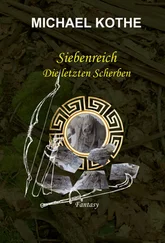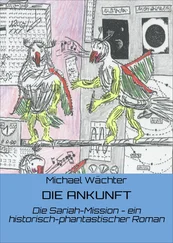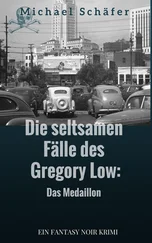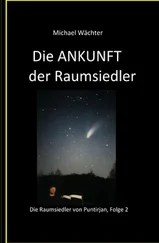She always preferred to work in a frenzy, to dash herself upon the rocks of a project — this was how she’d made her films — so during Will’s naps she cleaned, vacuumed, polished, painted, plastered, tore back wallpaper, and even sledgehammered half of a wall, swooping about on the skating rink of caffeine, coaxing the house into something that her brother wouldn’t have recognized. In a kerchief and some old jeans, she suffered the August swelter and fought the feral yard all the way back to the creek, where Charlie once pulled a thousand silver smelt in one night with just a net and a flashlight. A moving truck brought their furniture, Will’s toys, her cameras and books.
The work did her good, and this was a period of reprieve.
It was driving that allowed it back: a grocery run, stopped at a light while traversing the highway, Will strapped into his car seat like a babbling astronaut. When the green came, she shifted her foot, and they bucked then heaved to a halt. She pressed harder, yet the vehicle remained unmoved. Behind her a truck honked unkindly. She peered under the wheel to find her boot planted squarely on the brake.
Then the rushing heart and tingling digits, same as on the subway platform. How could she have confused the two most fundamental controls of the vehicle? Most unsettling was how easy it had been: they were both pedals, so close together, one a golf club and the other a door stopper — yet essentially indistinguishable. And what if she’d done it the other way around? Pumped the gas and jackrabbited onto the highway and the fury of logging trucks and snarling pickups piloted by jumpy, half-drunk hunters? What creature would she find belted into the burning jungle of death and fluid and steel that would remain of their car after the trucks had finished with it?
At first she simply avoided the highway. Routine trips took hours, but she didn’t mind. She kept to side roads and residential streets. Houses were a comfort. She’d use their phones if necessary. If what was necessary? Using the phone, she assured herself, plenty of good reasons for that.
Rather quickly, more rules established themselves. No roads over a certain speed limit. No night driving. Then no left-hand turns. She hugged the shore of the right lane, never risking her car in the path of an onrushing vehicle — that leftward leap of faith enough to burn her again with panic.
Each night her mind burbled with the close calls of the day, the inadequate traffic bylaws, the numbers and speeds and physics of it all. And after weeks of this she perceived driving for what it truly was: an impossibly complicated and lethal activity. One that required reserves of faith, confidence, and sheer stupidity that she would never possess.
After she sold the Rabbit and learned that Thunder Bay’s public transportation system had died the slow death of depopulation and underfunding, she and Will took taxis. The old trifecta of grocery store, library, and bank they could complete for less than fifty dollars in fares. For a while she’d been able to trust the proven expertise of these old men in mustaches and hats, immigrants mostly, because how could one possibly last as a cab driver without caution? And weren’t these soft-spoken men mostly poor? Weren’t their cars their very livelihood? Wouldn’t a crash scrape the food from their children’s plates? What better reassurance was there?
Will was three by this time and loved taxis. He asked the men questions with partially pronounced words that only she understood. “What means that?” he’d belt out, pointing at their CBs crackling with dispatches. “Yes, good,” the men would say, nodding.
But soon she found herself advising the drivers where to turn blocks in advance, checking and rechecking their gauges, reminding them of speed limit changes while peering between the headrests out the windshield, blotting the driver’s sightline with her alert face. They would glance at her in the rearview with their bushy eyebrows and try to smile.
After she could no longer abide the taxis, her ordering from home began in earnest. She discovered that with the right mix of ambiguity and persistence—“You see, sir, due to a severe condition I am unable to visit your store”—everyone in town delivered: the grocery store, the library, the pharmacy. Just say “severe condition,” and deliverymen leapt into their trucks. She was surprised by how easy it was, how efficient. They went through a checkbook a week — good thing they delivered those too. She and Will were free to take walks and do artwork and not be stuck dragging a cart through the shrink-wrapped gore of the meat section every Saturday.
Then the outside closed upon her like the aperture of a camera.
The front yard was more of a decision — a calculated avoidance of risk — than anything imposed upon her. While shoveling slush from the driveway, she found herself casually worrying that the panic would return, and by the time the dangerousness of this vein of thinking registered upon her, it was already there: the revving heart, the icy sweat, her throat constricting. She left the job unfinished and fled inside, where the symptoms instantly subsided. With no handy explanation this time, no subway doors, no crowds, no city, no mishandled car, only the snarling shovel and the tight cold and her breath a soft crystal in the air, she knew the panic no longer obeyed laws it once respected and would seize any opportunity she allowed it to decimate her. So after that day she would not venture even a few steps from their front door to where she knew it lay in wait.
Then, as she was picking up carrots, coal, and various items that four-year-old Will had used to personify a snowman, it visited her in the backyard, same as the front.
And if she could venture into neither yard without meeting a tempest of dread, how was she to leave? And how to let her son play in the yard if she couldn’t go out to retrieve him? What if a stray dog came? Or, God forbid, a man?
So they stayed inside. Thankfully, her son was so obsessed with building and painting and his constant tumult of inquisition that he never seemed to mind. Both Will’s father and his uncle Charlie had been solitary boys, content with books and models, words and drawings. It was almost relieving, this simplification, and there followed some relatively peaceful, untroubled years.
Then, around Will’s seventh birthday, it came in. She was folding laundry when the air was sucked from the basement, the way water withdraws from the shore before a wave. Terror like lungfuls of knife-sharp fumes choked her, and her mind tumbled. She was on hands and knees when she reached the stairs to claw her way out. She didn’t imagine anything truly harmful down there, no ghosts or stranglers, just the immovable fact that panic came for her was enough. She ordered Will a stool and taught him to do the laundry by drawing him a diagram of the controls. She ordered another and placed it at the foot of the freezer.
But the most regrettable by-product of staying inside was losing the capacity to face another human being. The micro-rhythms of conversation, the dance of facial mimicry, the fencing match of eye contact were lost to her once she fell out of practice. She soon ceased answering the door — another chore Will assumed with gusto. She grew lonely, but this, too, dropped away. She no longer yearned for people, other than Will, of course. She sated her social impulses with films, music, books, consoled by the fact that no matter what, the actors and characters could never see how hermetic she’d become, how far she had fallen.
At times she’d considered leaving. Pulling on her olive duffle coat and tramping outside. Perhaps bringing an umbrella. How strange it would be. “Hello, I’ve lived next to you for eight years, nice to meet you.” Yet there was never reason enough. She’d always believed that the day she left would be the day she was required to. How that could ever happen she could not say.
Читать дальше
